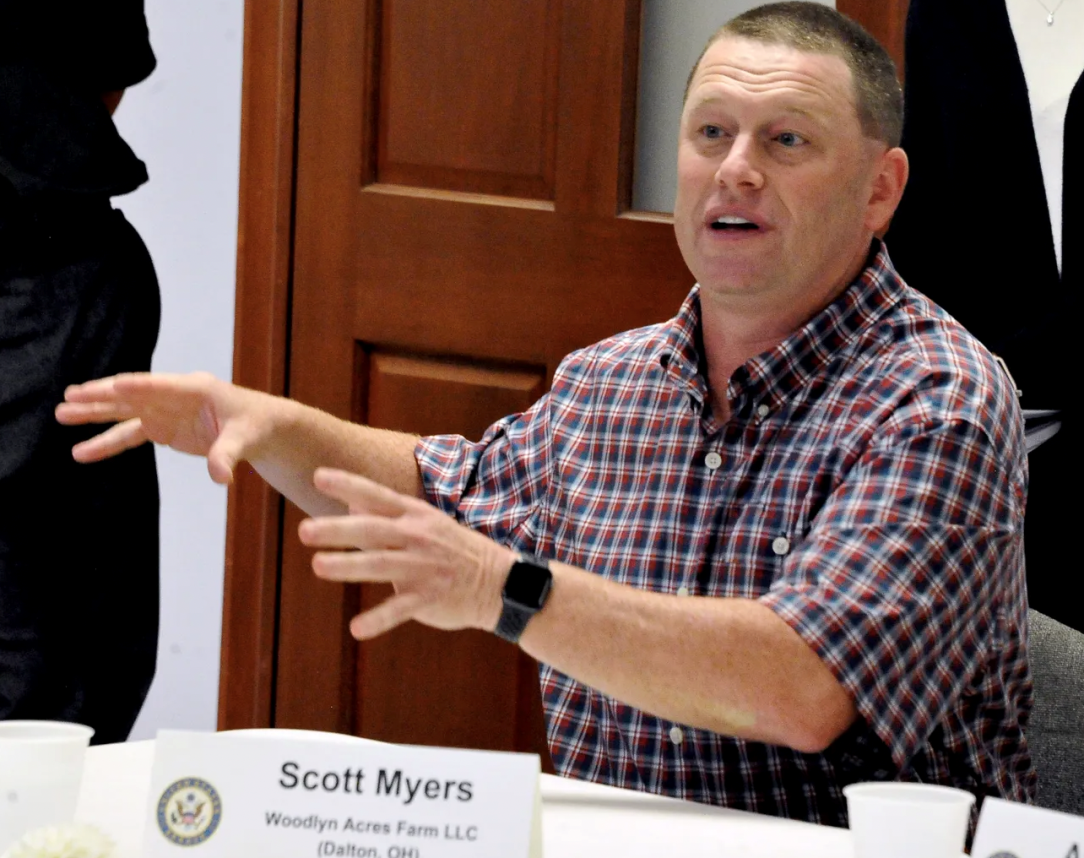Argentine exporter says organic grain shipments to the U.S. aren’t tested for pesticides, GMOs
Scott Myers was shocked at what he heard. The organic farmer from Dalton, Ohio, heard a presentation by Martin Casaday, commercial manager at Grupo Delotte, an Argentine exporter of organic grains. Speaking at Argus’s Organic & Identity Preserved Agriculture Forum last December, Casaday said his company had two standards for organic grain exports: one for the European Union and other countries and one for the United States.
Organic grain exports to the U.S. aren’t tested for pesticide residues
Myers, thinking that organic has one common standard, had never heard anyone say something like that before, so he asked Casaday: “What’s the difference?”
Casaday explained that his company knew that organic grain exports shipped to the U.S., which are certified according to the U.S. National Organic Program (NOP), would not be tested for prohibited substances such as pesticide residues and genetically modified material. Meanwhile, grain exports bound for the EU and other countries would be tested and would need to be “cleaner.”
“That’s just shocking. It’s just sad,” Myers says.
Myers later spoke to Casaday because he wanted to know more about it’ but said: “He didn’t really want to talk and realized he shouldn’t have said what he did.”
Myers later found out that it’s common knowledge that Argentine exporters aren’t as concerned about the integrity of organic grain exports to the U.S. as they are with other export markets.
“I didn’t realize that was going on in Argentina,” he says. “They’re not testing for pesticides, and they’re not testing for GMOs.”
Argentina is a major exporter of organic soybeans to the U.S., shipping 111,022 tons in 2024, according to The Jacobsen.
“There’s no penalty for lying, cheating, and misrepresenting”
Lynn Clarkson, CEO of Clarkson Grain, an Illinois-based supplier of organic grains, agrees with Myers’ findings, saying “he’s right on the money.”
“Why would anybody be particularly serious about saying things in the United States? Because there’s no penalty for lying, cheating, and misrepresenting, none,” Clarkson says. “Our USDA NOP and a lot of people from the Organic Trade Association claim that we have one [organic] rule around the world; that’s B.S. We only enforce it in the United States; we don’t have the ability to enforce it elsewhere.”
Clarkson estimates that of the suppliers who send fraudulent organic shipments to the U.S., less than 10% get caught, and some of those may lose their organic certificate but could be back in business shortly thereafter using a proxy.
“There’s no penalty whatsoever,” he says.
Clarkson calls the lack of integrity of organic grain imports into the U.S. “the biggest weakness to the integrity of the organic system.”
Last year, the U.S. Department of Agriculture implemented the Strengthening Organic Enforcement (SOE) rule to crack down on fraud in organic farming and food production. Jennifer Tucker, NOP deputy administrator at the time, said SOE is “shutting the door” on illegitimate shipments of organic commodities. Clarkson is still skeptical that SOE can stop the fraud.
“We have people talking about strengthening organic enforcement, but what does that really mean?” he asks. “Find somebody that will show you a few people who have been put in jail or paid a fine outside the United States for cheating. I don’t think you can, and I sure haven’t been able to.”
As much as 75% of organic soybeans used in the U.S.—mostly for poultry feed—come from outside the U.S., from Argentina, Africa, and Turkey.
In October 2024, the NOP issued a warning to organic certifiers about possible fraudulent imports of organic soybeans and soybean meal from West Africa.

From left to right: Rowan, Scott’s wife Nicole, Henson, Callum, Scott, and Gannon
“It’s a lot bigger problem than what most people realize”
Myers is hopeful that new legislation, the Organic Imports Verification Act of 2025, which would require the USDA to establish testing to ensure the integrity of feedstuffs imported as organic, can help stem the tide of fraudulent shipments.
“I’ve had my eyes opened in the last 18 months to what I always thought was a problem, but it’s a lot bigger problem than what most people realize, and so we’re really hoping that this bill can help stop the fraud,” Myers says.
Many people in the organic industry don’t want to talk about the fraud problem.
“They say we don’t want consumers to know, but it hurts the integrity of the organic label,” Myers says. “It’s important to have integrity with your customers; you want to make sure they can trust what they’re getting.”
Those hurt the most by the fraud of organic imports are U.S. organic farmers like Myers who do their best to produce quality organic crops like soybeans.
“What we have done is discriminate against the very farmers we want to help to improve the environment and health of food in the United States,” Clarkson says.
Myers would like to see U.S. companies encourage more domestic production of organic soybeans and soybean meal, which would reduce reliance on exports and thus reduce the fraud problem, but he sees resistance by domestic buyers.
“Buyers here say they would like to buy domestic grain but can’t get a consistent supply—but we could provide that if we have a level playing field,” he says. “We just want to make sure we are playing by the same rules.”
Myers is strongly committed to organics. “I’ve been an organic farmer for nine years, and even if the organic label went away, I would still farm organically because I believe in it.”









